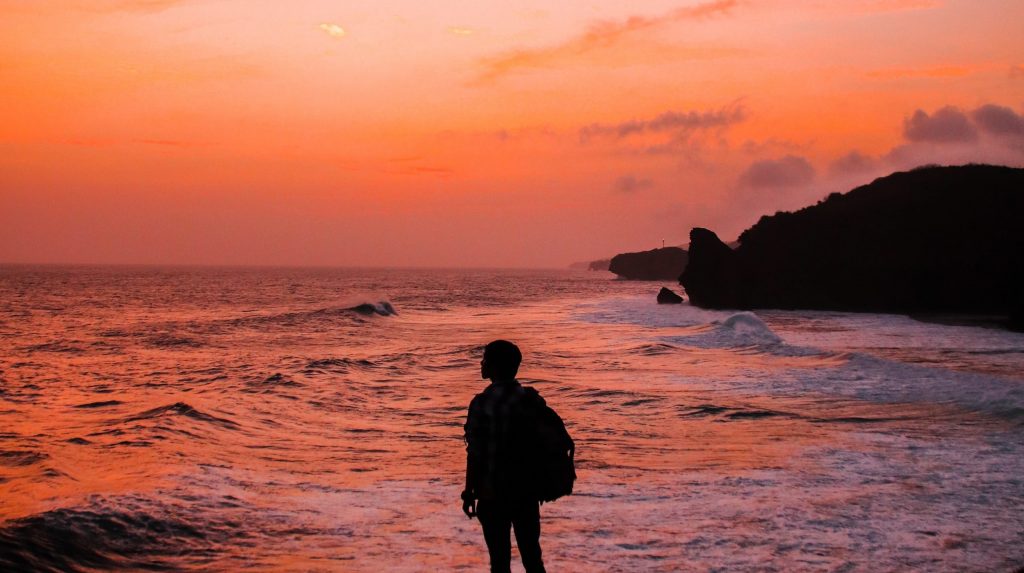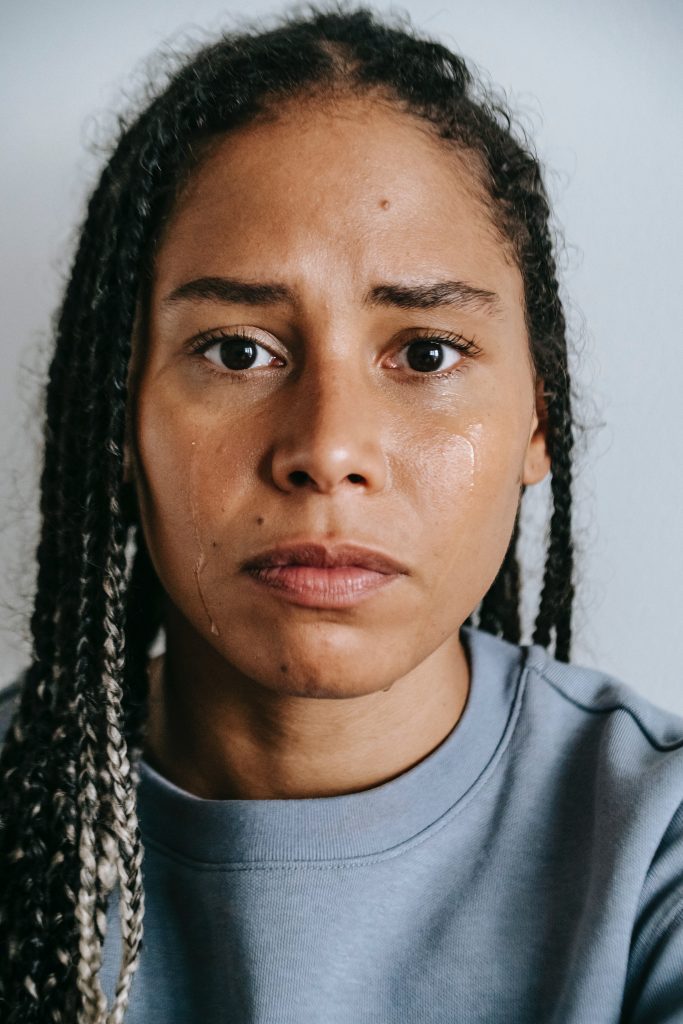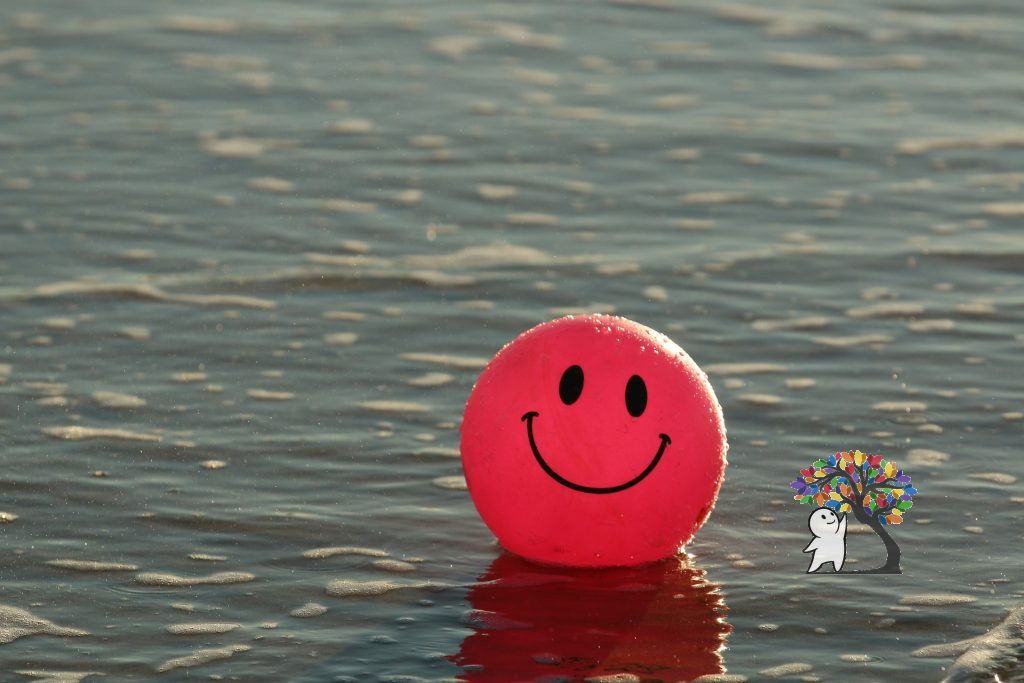My Experience with Depression and How I Overcome It

Although I first experienced depression in middle school, most of what I’ve learned about it has come from the past five years. As a preteen I naturally wasn’t aware enough to be able to tell how my mind was working differently. Probably the most common feature in a scenario like that is depression and sadness being somewhat interchangeable terms, because we often haven’t learned the difference yet at that age. In fact, it probably wasn’t until around my 27th birthday when I realized how truly separate the two were, when I spent a week unable to leave the house despite being in a pretty great mood. And really, for two thirds of my life at that point I had only experienced depression in terms of extreme sadness or lethargy in response to an event, usually interpersonal.
As a preteen I experienced a great deal of depression and sadness due to academic, social and presumably hormonal difficulties. It left me nihilistic and often finding ways to try to draw attention to myself passively (because I was still a shy kid, after all). I began to express what I was going through in a number of different ways, from drawings and writing to song lyrics. I had loved drawing since I was much younger, but I began to explore drawing and art in general both for the sake of expression and as a way to prove myself as more capable than the person I negatively perceived myself to be. Over the years between middle school and early high school I degraded emotionally, I had begun making threats of self-harm and was even pulled out of public school. When this happened I had also gone from 110 pounds to a stunning 160 over the course of about three months due to a medication I was on, and the backdrop to all of this was the chaotic and mournful aftermath of 9/11 in the American public consciousness. It’s worth pointing out that although the two were separate, I doubt it’s a coincidence that my three darkest periods were in 2001, mid-2016, and throughout all of 2020. None of my issues were caused by world events, but I think bleaker environments only reinforced all the negative thinking I engaged in.
Throughout most of 2002 I smiled in exactly zero photos, including a professionally-done family portrait. This was stated and deliberate, sort of a generalized backlash against the outside world because of how I felt. I would sometimes be needlessly bitter, stubborn, even explosive, and I often spent all evening in my room playing video games or watching TV. Indeed, although I never stopped drawing, I did stop experimenting with crafts, collage, writing, etc. and retreat into a hole of old video games. While video games can be a very effective form of distraction from difficult periods, I had become withdrawn to the point of needing treatment for social anxiety disorder (likely due to RSD, as I only recently discovered). There were many interpersonal conflicts and outbursts, often in full view of others. Whether this was aided by my relocation to a “second-chance school” primarily occupied by other teens that had been suspended or expelled, I’m not sure. The lowest moment was likely after committing a particularly upsetting form of self-harm, which I covered up with a bowling glove. This only attracted attention to it and in no time the secret was blown wide open. A 40mg prescription to Paxil, which I’ve since been told by some was far too high a dose for a 16 year-old, led me to double down on the strange, attention-seeking behavior. However it was usually in the form of transparently empty statements. I don’t believe this troubling behavior really slowed down until I was relocated back to my initial public school and taken off medication. Crucially, that is something I would never recommend to anyone, and would usually discourage it. However, I had been bounced from prescription to prescription for a couple of years and the doctor never included time for one drug to leave my system before putting me on another. In that scenario I do think it was better that I was able to detox for a while. My behavior improved dramatically and I was even able to lose the weight I had gained, at least after I had about six months to adjust to normal life again. The transition wasn’t immediate, the private school had about 80 kids when I left, whereas the public school had easily over a thousand students. This could sometimes give me terrible social anxiety, and some class presentations felt impossible, but there was a clean transition for the most part.
Although there were brushes with depression over the decade following, they were far less common, and were often due to external factors either beyond my control or were due to a friend’s struggles. There were episodes caused by sleep deprivation as well, due to a graveyard shift job and later to a pattern of all-nighters in art school. A more chronic form of depression would arrive in my late 20’s as I finally got my bachelor’s degree and faced a difficult job market living in Atlanta. A decision was made to apply to grad school, something I had wanted to do anyway out of an interest in teaching. While undergrad was easily one of the happiest periods of my life, grad school was much more complicated, and came with persistent bouts of depression and anxiety. I was substantially less social and prone to spending hours laying on the couch, either playing with my phone or doing nothing at all. I would stare at the ceiling, or bury my head between the pillow and cushions. Most of grad school was backlit by a constant tug of war (or cause and effect) between anxiety and depression, bouncing off of each other. However I became much more proactive in my mental health as a result, and eventually settled on a prescription regiment that I still follow today. I then started regular therapy for the first time as an adult, which I’ve mostly kept up since then.
Following grad school I moved to Brooklyn, NY to live with my girlfriend at the time, who I had been with for four and a half years by that point. At the beginning it was a moment of comfort and joy I hadn’t really experienced in a long time, if ever. At a certain point, though, the work just stopped coming in. My then- unrecognized ADHD essentially took the wheel, and most measures to dig my way out were a struggle. One of the most significant phenomena that I’ve learned about since understanding the scope of my ADHD is the concept of the “wall of awful”, sort of an inability to do something you know *needs* to be done, because there are fears of failure, shame and so on tied up in it. Paradoxically, this can even include fears of what will happen if you continue to not do the thing. That aspect of ADHD defines my 2019 more than any other, despite constant attempts to overcome it and endless encouragement from my partner. In trying to compromise with the part of me that wouldn’t budge, I spent all of 2019 squeezing as much employability as possible out of my extremely narrow window of interest in commercial work. I worked nearly full-time on elaborate daily drawings, but couldn’t get more than a couple days into creating the kinds of demo reel pieces that would improve my chances of finding work. I had become complacent because what made me happiest was my relationship, and whether out of an uncharacteristic lack of communication or my simply being lost and aloof, I had no idea it was in danger until it was too late. It ended the last week of 2019. A promising job lead the following month would help to elevate me out of the pit I’d found myself in, along with joining interest groups to build a new social circle. I was going for daily walks, exercising, cooking healthy meals, and so on. Following the arrival of covid in NYC and interpersonal conflict reaching a boiling point, the bottom fell out. The following ten months or so were a relentless emotional slog, punctuated by moments of emotional and physical pain becoming nearly indistinguishable from one another. An internal war between what I wanted and what I needed raged on as I made a series of mistakes trying to escape an inescapable situation. An intensive outpatient program via Zoom kept me afloat on three therapy sessions a week, and looking back over the past year I can see my mood as something zig-zagging like the chart of a tumultuous, but slowly upward-trending company on the stock market. Over time, rock bottom becomes a little higher than before, and the good days become more like actual good days than simply normal. Much of this time was spent in a suffocating, crowded and dark apartment, which seemed to encourage withdrawal and hours- even days- spent in bed. Moving out early and landing a tremendous upgrade for a little less per month made a recognizable (albeit impermanent) difference, and taught me an important lesson about considering the mental health impact when looking for apartments on a budget. The location made the largest impact, however, because suddenly there was no excuse to stay inside for days at a time, fearful of the world. Even during intense bouts of shame and feelings of rejection, there were still reasons to force myself out into the sunlight.
Over the decades I’ve had a number of methods of dealing with depression that weren’t particularly healthy. The ones that were healthy, however, often involved distraction or turning to friends. Distraction could mean driving around and listening to music (a rural pastime, for sure) or it could mean something more hobby-oriented. The video game collecting I mentioned earlier continued on and off to this day, and opened up a well of trivial information, experiences, art, and- let’s be honest- terrible financial decisions. Like many, the game area itself became a small project, and even after selling a great deal of those games, I still have a retro setup. My closest friend from childhood actually did the same, both of ours in an effort to have a little time capsule to turn to in moments of stress and escapism. However, if not handled correctly, this hobby becomes detrimental very quickly. Escapism can limit one’s ability to make real change in their lives and improve their situation, and classic video games can now cost a ridiculous amount of money depending on what you’re after. Not only has there been an additional 20 years of new stuff, the older games only really go up in value as individual copies break down.
Art was far and away the healthiest channel for me to process and express things going on in my life, and it has always run the gamut. I’ve experimented in essentially every type of drawing I could get my hands on, and most types of painting and photography. As a preteen I would work with clay as well as modify existing toys to make new things out of them. Picture Sid from Toy Story but less nefarious, even though I had the same shirt. I also made my own album art using newspaper clippings, print-outs, drawings and collage. More than anything though, simple drawing and writing have been my go-to formats. In pursuing animation I made films about subjects like depression, anxiety, grief and emotional dependency. Two of these ran around 2 minutes long and were very clearly a channel with which I was able to unload the things weighing on me, and make a recognizable, semi-permanent change in my mental state.
As I entered my 30’s I started regular therapy and learned a host of other skills and coping mechanisms, many of which I still use today. I try to walk outside as much as I can, I’ve lived in downtown Savannah, GA and Brooklyn, NY during these periods so walks outside can carry a lot of benefits. Others include journaling, mindfulness meditation, and self-parenting. Through therapy I’ve also explored CBT and DBT skills. All of these have helped me get through several periods of stagnation to the current day, where I’ve had a number of breakthroughs as to the causes of my psychological struggles and have been able to work on them directly and make plans for treatment that is not only more effective, but potentially more permanent.
Depression arrives in many forms and can disguise itself as sadness, lethargy, apathy, and others. I’ve learned that recognizing depression can be deceptively difficult because when it’s at its worst, it has your mind under its control, and it gets harder to differentiate the real world from the dystopia that depression will convince you is real. Time helps, as does mindfulness, exercise and spending time with loved ones (if at all possible), and no matter how long you’ve dealt with it you can always let your guard down without noticing. It’s important to try the things that work, but the most important part is maintaining some semblance of effort trying to wrestle control from depression’s grip so you can steer yourself in the right direction. It may mean complete control, or just pulling the wheel in the right direction every time you can get your hands on it. Either way both the most important and often seemingly hardest part is simply “trying”. That often means physically getting up to do something that will make you feel better (not the thing that will give you a burst of dopamine, like frivolous spending or junk food). It’s also very important to keep in mind that it’s a process, not a simple cause-and-effect solution. The most important letter in this article is the second “o” in Overcome, as opposed to the past tense “Overcame”. It can go away, sure, but it will almost certainly take time, and it can come back. Dealing with depression is not a singular act. It’s a pattern of good habits, the knowledge of what activities will provide you with the greatest improvement in mood, and what activities will be a temporary distraction. Your most important decisions when dealing with depression, outside of the medical choices you make, will be the lifestyle you live and the way you treat yourself and others.
Has your experience with depression been like this? Different? If you have a perspective you think could help others know when to see a doctor or therapist, please let us know in the comments below.





Responses